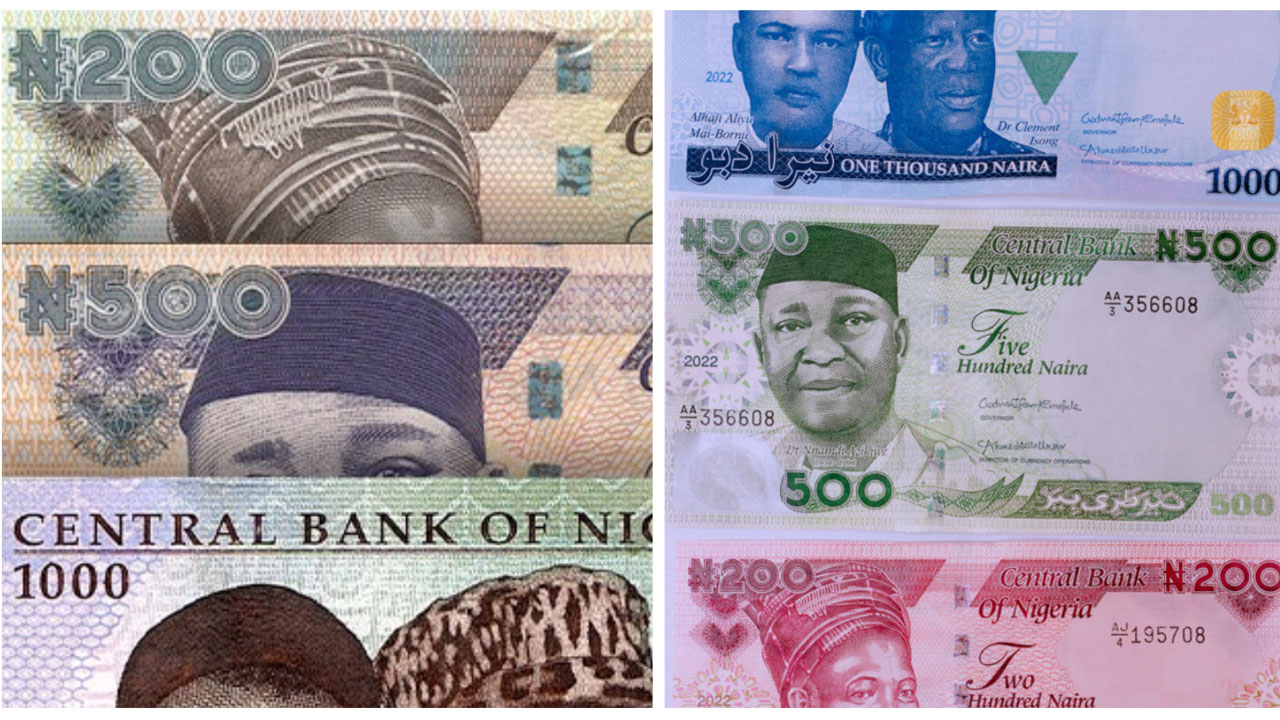
The Central Bank of Nigeria (CBN) yesterday dismissed speculation that the old N200, N500, and N1,000 banknotes would cease to exist at the end of this year, referencing the Supreme Court order of November 29, 2023, which extended the use of the notes indefinitely.
Recall that on November 29, 2023, the Supreme Court ruled that both old and new naira notes would coexist as legal tender until further notice.
The CBN reiterated that its directive to all branches to continue issuing and accepting all denominations of Nigerian banknotes—both old and redesigned—from deposit money banks (DMBs) remains in effect.
“We, therefore, advise members of the public to disregard suggestions that the said series of banknotes will cease to be legal tender on December 31, 2024. We urge Nigerians to continue accepting all naira banknotes (old or redesigned) for their day-to-day transactions and handle them with utmost care to safeguard and protect their lifecycle,” the CBN said in a statement by its acting Director of Corporate Communications, Mrs. Sidi Ali Hakama.
Earlier, the House of Representatives urged the CBN to issue more of the new N200, N500, and N1,000 notes while also asking the apex bank to commence the gradual withdrawal of old notes from circulation before the December 31, 2024, deadline.
In a related development, the Federal High Court in Lagos dismissed a suit seeking the removal of Arabic inscriptions from naira notes.
The lawmakers cautioned that Nigeria could face another crisis similar to that of February 2023 if the old N200, N500, and N1,000 notes cease to be legal tender by January 1, 2025.
In a motion of urgent national importance sponsored by Afam Victor Ogene, the House urged the CBN to direct commercial banks to stop cash payments using the old notes and to begin a gradual withdrawal of the old currency from circulation.
Ogene recalled the hardship and chaotic situations that arose during the 2023 currency redesign and reminded the House of the naira scarcity that followed, causing nationwide hardship due to the CBN’s inability to supply new notes.
He noted that based on the Supreme Court’s ruling, the old N200, N500, and N1,000 notes will cease to be legal tender and withdrawn from circulation as of January 1, 2025.
Expressing concern, Ogene stated that the CBN had not initiated any awareness program to prepare Nigerians for the December 31, 2024, deadline.
The House directed its Committee on Banking Regulations to ensure compliance and report back within 21 days.
Meanwhile, Justice Yellim Bogoro ruled against the suit filed by Lagos-based lawyer Malcolm Omirhobo, who had prayed the court to remove Arabic inscriptions from naira notes.
Omirhobo argued that the Arabic inscriptions suggested Nigeria was an Islamic state, contrary to its constitutional status as a secular state. He also claimed not to understand the meaning of the Arabic inscriptions and requested the CBN replace them with English or any of Nigeria’s three main indigenous languages—Hausa, Yoruba, or Igbo.
The lawyer further contended that the Arabic inscriptions violated Sections 10 and 55 of the Constitution, which establish Nigeria as a secular state.
He asked the court to annul Section 53(1) of the Banks and Other Financial Institutions Act, Cap 83, LFN 2004, as it conflicted with sections of the 1999 Constitution.
Additionally, Omirhobo sought an order restraining the CBN from using public funds to print naira notes with Arabic inscriptions, demanding instead that words from his religion, Olokun worship, or other religions in Nigeria, as well as his native Urhobo language or any indigenous language, be inscribed.
While the judge acknowledged that Omirhobo had the legal standing to bring the case, he ruled that the lawyer failed to prove that the CBN acted in bad faith by printing notes with Arabic inscriptions. The court, therefore, dismissed the suit.






